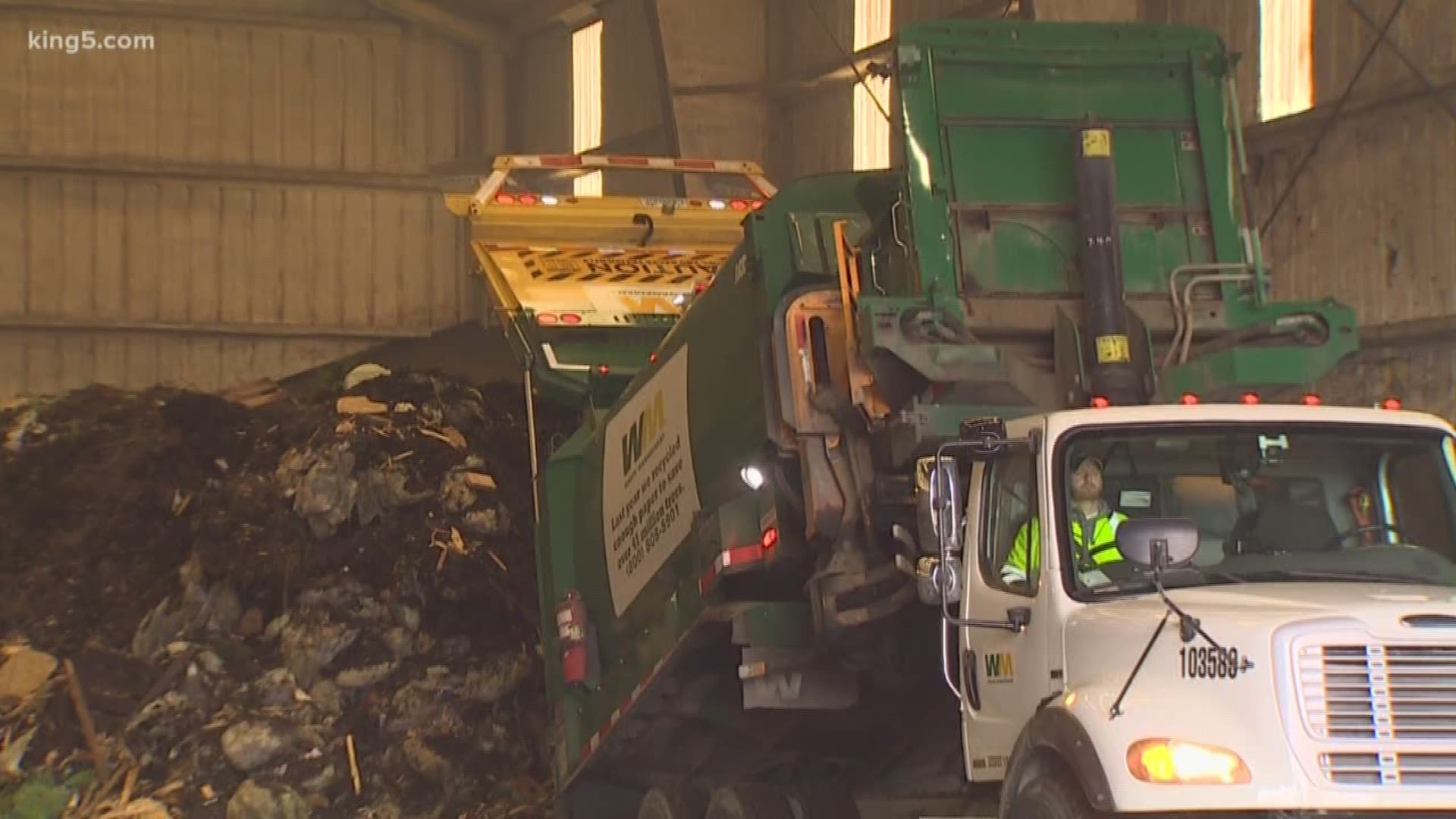RENTON, Wash. — For 42 years, Stephen Deutschman has lived in the same house in Renton. About 24 years ago, a composting facility started up nearby.
It's run by Cedar Grove, who handles food and yard waste from King and Snohomish counties. And there are days Deutschman can smell his neighbor before he can even see it.
"It smells like someone is choking you, is what it smells like to me. It's very pungent," Deutschman said.
In 2012, Cedar Grove faced four lawsuits over bad smells. One of them made it to court and Cedar Grove won. No one's shown compelling evidence that the smell does any damage to human health or violates state or federal law.
But fighting a lawsuit is costly even when successful, and Cedar Grove says, the so-called "nuisance lawsuits" could put companies out of business. That's why they're supporting legislation that protects composting as an agricultural practice and restricts nuisance lawsuits to just those arguing a violation of a regulation or an adverse effect on public health.
In other words, a bad smell won't be enough reason to file a lawsuit.
"Notwithstanding any other provision of this chapter, composting, if consistent with good agricultural or forest practices, established prior to surrounding nonagricultural or nonforestry activities, and in compliance with county and city regulations, is presumed to be reasonable and shall not be found to constitute a nuisance unless the activity or practice violates county or city regulations or has a substantial adverse effect on public health and safety."
King County residents are composting more than ever before, diverting more than 350,000 tons of food, food-soiled paper, and yard debris from landfills in 2016.
Cedar Grove sent KING the following statement:
“Composting provides scientifically-proven environmental benefits and is vital to our region meeting ambitious landfill waste reduction goals. Composting is a highly regulated industry and HB 1167 will not change any local or state laws, oversight responsibilities, nor preclude individuals from filing suit against a compost facility. The Legislature recognizes the essential role composting plays in diverting tons of organic food scraps and yard trimmings from landfills. Similar to the agricultural and timber sectors, the proposed legislation would merely prevent frivolous lawsuits so composting providers can continue this vital, environmentally beneficial service for the region that helps achieve the state’s ambitious diversion goals. The threat and wasteful expense of litigation will jeopardize our state’s composting future by stifling investment, growth and innovation across the industry.”
Deutschman is concerned the legislation would restrict a private citizen's ability to take action against the smell.
"Once again, I'm not against composting whatsoever. It's a value added to us. We need to do that. I compost myself. It's very important. We just need to figure out and mitigate this process," he said.

